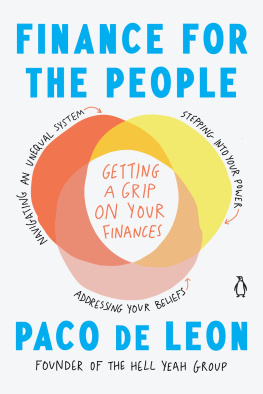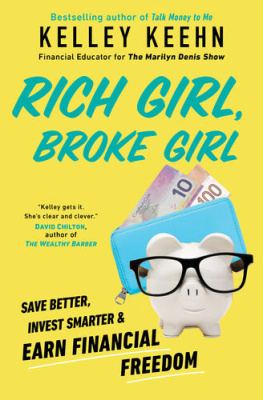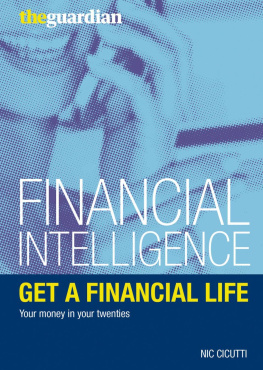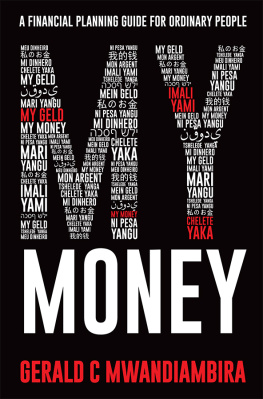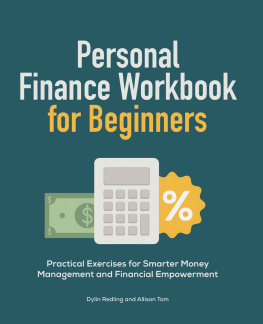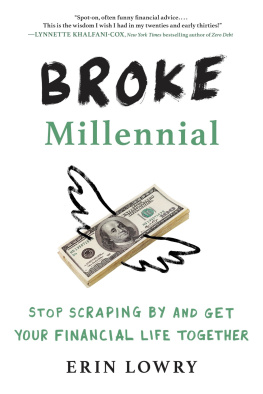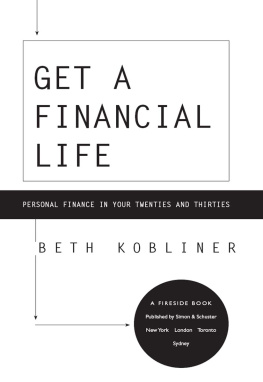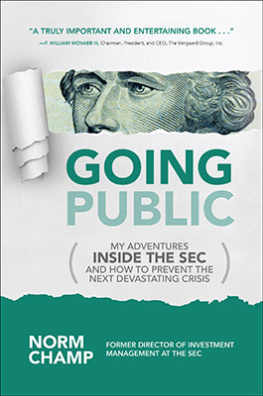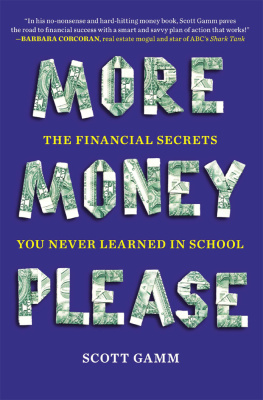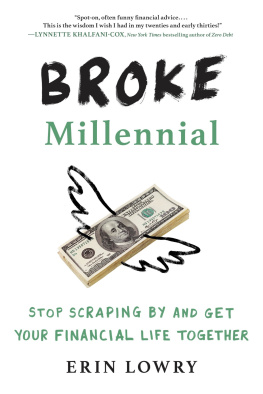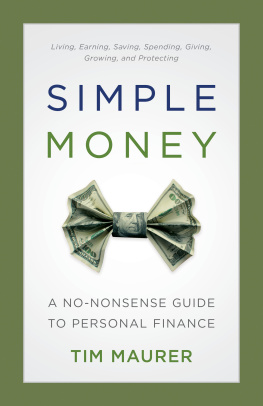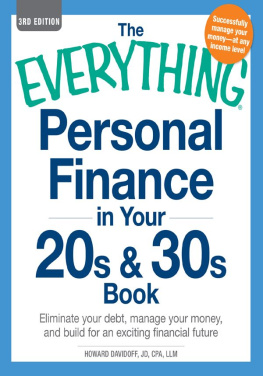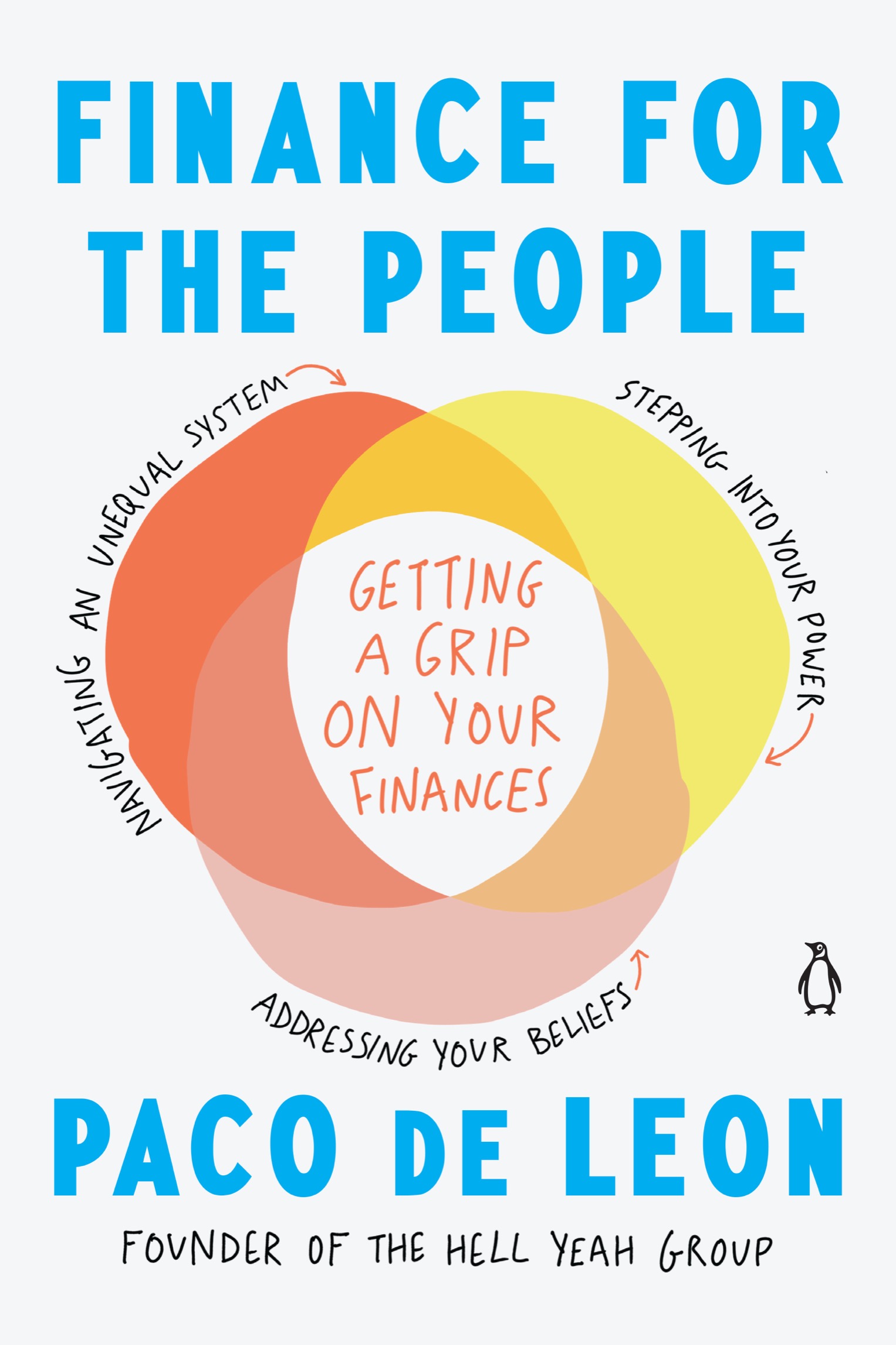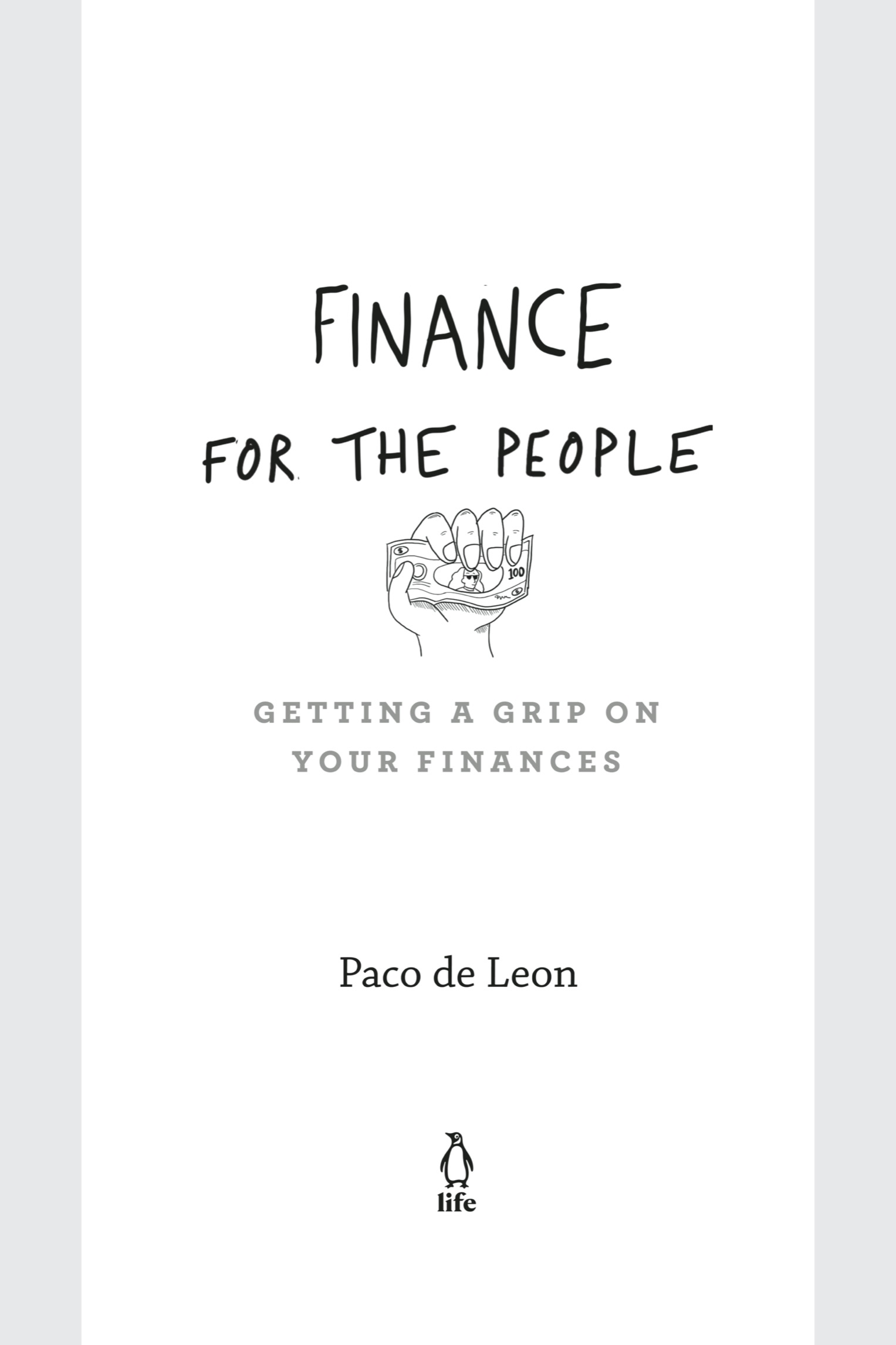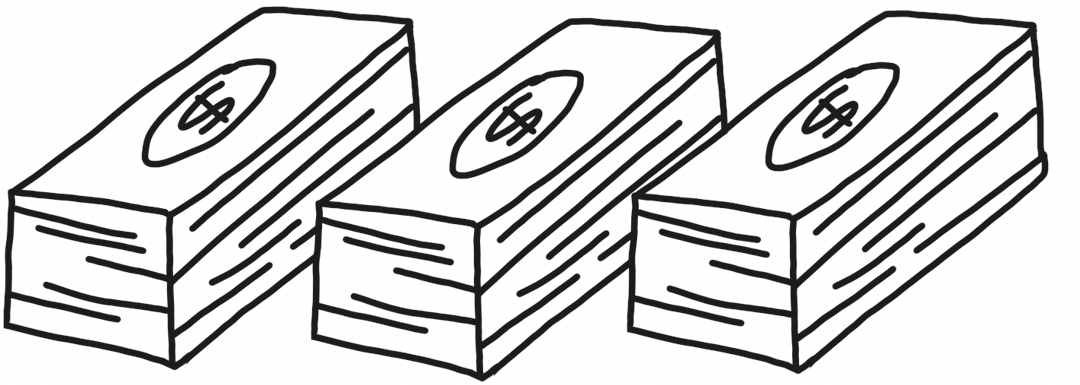penguin life
FINANCE FOR THE PEOPLE
Paco de Leon is an author, an illustrator, a musician and the founder of The Hell Yeah Group, a financial firm dedicated to inspiring creatives to engage with their personal and business finances. Her career experiences in banking, business consulting, financial planning and wealth management have informed her financial philosophies. She is a TED speaker and her work has been published or featured in The New York Times, Forbes, Bloomberg, Vice, and other publications, and on NPR. She lives in Los Angeles with her wife.
PENGUIN BOOKS
An imprint of Penguin Random House LLC
penguinrandomhouse.com
Copyright 2022 One Jelly Bean, Co.
Penguin supports copyright. Copyright fuels creativity, encourages diverse voices, promotes free speech, and creates a vibrant culture. Thank you for buying an authorized edition of this book and for complying with copyright laws by not reproducing, scanning, or distributing any part of it in any form without permission. You are supporting writers and allowing Penguin to continue to publish books for every reader.
A Penguin Life Book
library of congress cataloging-in-publication data
Names: de Leon, Paco, author.
Title: Finance for the people: getting a grip on your finances / Paco de Leon.
Description: New York: Penguin Life [2022] | Includes bibliographical references.
Identifiers: LCCN 2021026464 | ISBN 9780143136255 (paperback) | ISBN 9780525507840 (ebook)
Subjects: LCSH: Finance, Personal. | Money.
Classification: LCC HG179 .D3835 2022 | DDC 332.024dc23
LC record available at https://lccn.loc.gov/2021026464
Cover design: Elizabeth Yaffe and Paco de Leon
Designed by Sabrina Bowers, adapted for ebook by Cora Wigen
This publication is designed to provide accurate and authoritative information in regard to the subject matter covered. It is sold with the understanding that the publisher is not engaged in rendering legal, accounting, or other professional services. If you require legal advice or other expert assistance, you should seek the services of a competent professional.
While the author has made every effort to provide accurate telephone numbers, internet addresses, and other contact information at the time of publication, neither the publisher nor the author assumes any responsibility for errors or for changes that occur after publication. Further, the publisher does not have any control over and does not assume any responsibility for author or third-party websites or their content.
pid_prh_6.0_139102252_c0_r0
To my sweet wife, Jenn, for always believing in me, and to my former fifteen-year-old self, and to you, the reader, whose potential for creativity and change is unlimited
Introduction
Money is a proxy for power, and I believe, like so many humans in the modern world, that when you have money you have power. The most obvious way we think about this is that people who have a great deal of money tend to have a great deal of power. But, of course, the opposite is also true. And Im convinced thats why so many of us also carry such deep emotional associations to money. I once had a therapist who told me that the feeling I dread the most is the feeling of powerlessness. When I learned this about myself, I was able to see so many of my behaviors in a new light. My career in money made perfect sense when seen through this lens. To struggle with money, to feel you dont have enough, to feel like you dont have control over your financial life, is at its essence a terrifying feeling of powerlessnessfor me, for you, for everyone.
Power gets a bad rap; some people who seek it do so in order to wield it over others. I want to have power because I dont want it wielded over me. Becoming empowered in a society that doesnt want me to be empowered is one of the single most radical actions I can take. A close second is writing this book.
I didnt write this book because of my white-hot passion for personal finance. In fact, I dont have a white-hot passion for personal finance. What I do care about is helping people connect to their personal power because once you come into it, its like a bell that cannot be un-rung. Coming into your power gives you clarity. It changes your world subtly and forever. It shows you that you will always have options, but you have to learn how to see them.
I wrote this book for practical reasons; its valuable to understand how to navigate the financial system from someone who knows the twists and turns. Its also incredibly practical to use processes and systems to help you reach financial milestones. Much of the practical knowledge I share in this book comes from my experience working with clients as a financial planner, a bookkeeper, a small business consultant, a collections agent, a failed salesperson and a person owning and running small businesses. This book is different from other personal finance books for a few reasons. While its incredibly practical, its also much more than that. This book will help you think about money in a different way. Much like my realization with my relationship to power, I want to help you see your relationship with money in a new light.
Just to be clear, Im not sharing what Ive learned from the perspective of someone in the financial industry who benefits from it and wants to maintain the status quo. Fuck the status quo. This book is about setting information free.
I approached my decision to study finance and economics the same way a lot of people approach their financial decisions: I was haphazardly following conventional wisdom in an attempt to be practical, and to not screw up my life.
Before my last semester, when I examined what options a finance degree would grant me, I decided I would either become a financial planner or a business consultant. As I understood it, financial planners helped people with their money, and business consultants helped businesses with theirs. I figured it was the same kind of work, but for different types of clients.
A couple of months after graduating, and through a series of fortunate events, I found gainful employment with a boutique business consulting firm in Los Angeles. But heres what felt like a cosmic joke: the consulting firm sublet an office and a few cubicles inside the office of a financial planning firm. Weirdly, I had gotten both of the things that I wanted.
My first day of work at the consulting firm was in August 2008, right around the time that the housing crisis was starting to heat up. The financial planning firm we shared space with was having a staff meeting in the conference room next door. I could overhear them talking about the beginnings of the housing meltdown; clients were panicking, and they were coming up with a plan to help them remain calm. I already knew that I wanted to be in that conference room, sitting at that table, hearing those conversations. And I knew why.
What was happening in the financial world seemed like an exciting, once-in-a-lifetime event. I wanted to sit shotgun as the financial world burned. I know that makes me sound messed up, but I was twenty-two and had my whole boring career ahead of me. I thought this was as exciting as the world of finance could get. Two years later, I ended up working for that financial planning firm. I made it into the conference room. I got a seat at that table.

